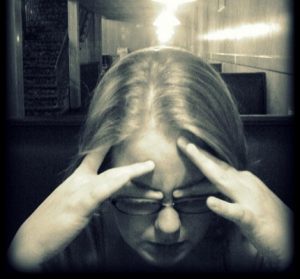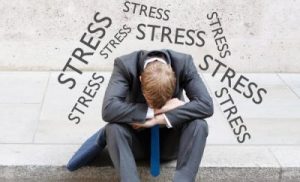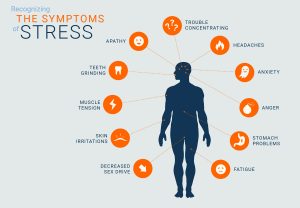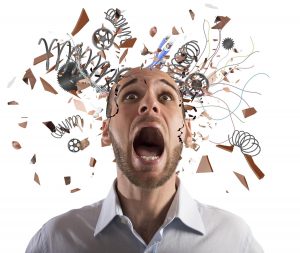Distress and Chronic Stress – How it impacts our body and health?
1. Stress – a common problem in a technologically advanced modern era
Even though we are living in the most prosperous times of history with advanced technologies, more people are suffering from stress than before.
We are living in stressful times.

Stress is a common problem that affects almost every one of us during our lifetime.
Research says one study was done between 1979 to 1983, less than 5% population reported a greater level of stress.
NOW MORE THAN 50% REPORTS MORE STRESS.

All stress is not bad.
Stress can be good (Eustress) or bad (Distress)
Stress can be acute or chronic.

Eustress is positive and happy emotional state
Examples of Eustress or Good Stress:
1. Birth of a child
2. Job Promotion
3. Getting engaged or marrying etc

Distress is Negative and unhappy emotional state.
Examples of Distress or Bad Stress:
1. Death of Spouse
2. Divorce
3. Misbehaving children/ Personal Relationships
4. Hostile workplace relationships
5. Financial Crunch
Acute vs. Chronic stress
Acute stress is something short lived.
Example: 1) Working in the office from 9 to 5 pm or 2) Exam stress during 1 week of exams.
Acute stress increases FOCUS and is good for productivity. In acute stress time duration is short and the outcome is expected.
You know office work is only till 5 to 6 pm, and we know we can relax once exams are over after a week.
Chronic stress is one where the duration is long and “EXACT OUTCOME IS NOT KNOWN“.
Examples: Family problems, personal relationships, financial problems, etc
In such situations, we don’t know exactly what is going to happen and we are not sure of the outcome. We are not sure whether the problem is going to solve or end up in misery.
By evolution, human beings are not adapted to chronic stress. For thousands of years, Humans faced acute stresses.
Ex: Ancient men were hunting in the forest, facing the acute stress of attack from animals.
Floods, famines, and wars were also periodic acute stressors lasting for a certain period of time.
Family life and agriculture started since last 5000 plus years. Our genetic changes happen very slowly.
In the last 5000 years, only 10% genetic change happened. 90% genres are similar to humans who were living 10000 years ago.
Thus, we humans are not evolved to handle chronic stress by evolution.
“EXPOSURE TO CHRONIC STRESS IS CAUSING EVOLUTIONARY GENETIC MISMATCH WHICH IS CAUSING CHRONIC LIFESTYLE DISEASES“.
Now common causes of chronic stress are related to
1) Family and personal relationships
2) Financial problems
People get long term and easy loans from the banks with hope on future.
Getting loans was not easy earlier and loans were not for long term. Now people are running on home loans for 10 to 20 years.
Many people stick to jobs they don’t like due to loan commitments which is chronic stress.
2. SIGNS AND SYMPTOMS OF STRESS
OUR BODY KNOWS HOW TO HANDLE STRESS.

Stress is our body’s way of responding to any kind of demand or threat that it senses internally and externally.
When you sense danger, which can be real or a figment of our imagination, at that time our body’s self-defence comes into action and produces a rapid, automatic process known as the “fight-or-flight” reaction or better known as the “stress response.”
But beyond a certain point, stress becomes negative for our body and causes changes that have long-term implications for our health, mood, productivity and which results in overall degradation in the quality of our life.
The most dangerous characteristic of stress is that your body gets used to it on a daily basis letting it grow within. That’s why it is also referred to as “Silent Killer”.
It is therefore very important to understand these most common warning signs and symptoms associated with stress:
Cognitive Symptoms:
- Difficulty in remembering
- Inability to concentrate
- Poor judgment
- Always looking at the negative side of any event
- Anxiousness
Emotional Symptoms:
- Get irritated at the slightest of mistakes.
- Frequent mood changes
- Loneliness
- Depression
Physical Symptoms:
- Frequent aches and pains in the lower back and neck areas
- Diarrhoea or constipation
- Chest pain, rapid heartbeat
- Loss of libido/sex drive
Behavioural Symptoms:
- Binge eating or eating none at all
- Sleeping more or no sleep
- Withdrawal from people and socializing
- Turning to drugs, alcohol or other substance abuse.
3. WHAT HAPPENS TO OUR BODY CHEMISTRY UNDER STRESS?

The most general changes or responses that occur in your body when it is stressed results in releasing of a wave of stress hormones, including ADRENALINE and CORTISOL, which prepares the body for emergency action.
Your heart will pound faster, muscles get tightened, blood pressure rises more than usual, breath becomes short and rapid, and your senses are in a heightened state.
The problem happens when adrenaline and CORTISOL, primary stress hormones continue to increase in blood for a long time under chronic stress.
Chronic increase in cortisol increases blood sugar levels, raises our BP and in the long run can lead to DIABETES, HYPERTENSION, HEART ATTACKS, DEPRESSION and many chronic lifestyle diseases.
Few people know this.
Example: 15 to 20% of heart attacks are caused by chronic stress but it is less understood than the high cholesterol causing heart problems.
In my next post, I will be discussing tips to manage stress. Do subscribe to the mailing list for getting notified of the latest posts in my blog.
Please leave your questions, valuable comments and suggestions below. It will encourage me to write better.




6 Comments